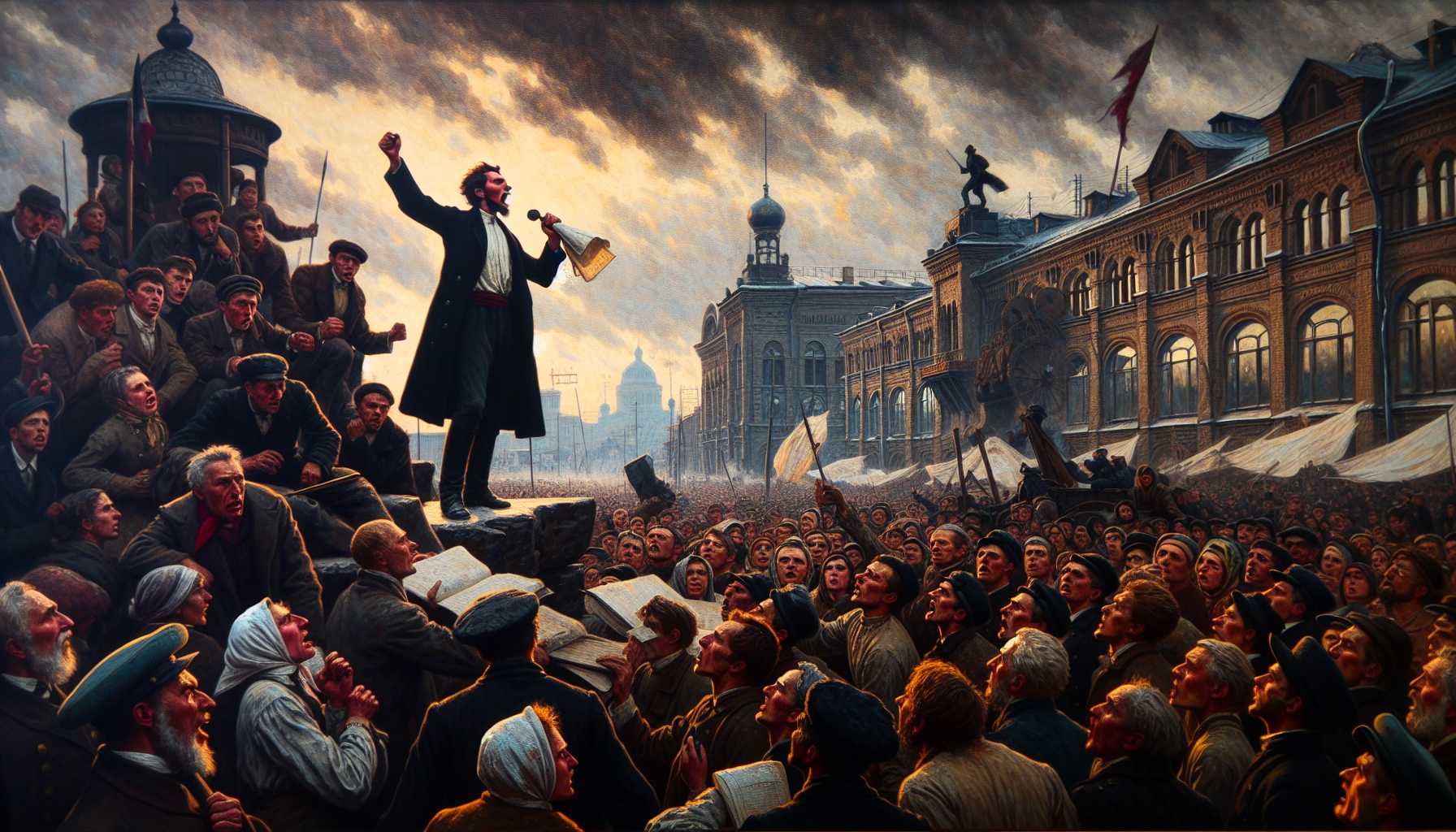
Vladimir Lenin Impact on 20th Century History and Communism
Vladimir Lenin was a pivotal figure in 20th-century history, best known for being the leader of the Bolshevik Party and the architect of the Soviet Union.
Vladimir Lenin fue una figura fundamental en la historia del siglo XX, mejor conocido por ser el líder del Partido Bolchevique y el arquitecto de la Unión Soviética.
Born in 1870 in Russia, he became involved in revolutionary politics in the early 1900s, advocating for Marxist principles and the overthrow of the Tsarist autocracy.
Nacido en 1870 en Rusia, se involucró en la política revolucionaria a principios de 1900, abogando por los principios marxistas y el derrocamiento de la autocracia zarista.
Lenin's revolutionary fervor led to the 1917 October Revolution, which resulted in the Bolsheviks seizing power and establishing a communist government.
El fervor revolucionario de Lenin condujo a la Revolución de Octubre de 1917, que resultó en que los bolcheviques tomaran el poder y establecieran un gobierno comunista.
Lenin implemented significant reforms and policies aimed at restructuring Russian society and economy.
Lenin implementó reformas y políticas significativas destinadas a reestructurar la sociedad y la economía rusa.
His leadership during the Russian Civil War (1917-1922) solidified his power but also resulted in widespread violence and hardship.
Su liderazgo durante la Guerra Civil Rusa (1917-1922) consolidó su poder, pero también resultó en una violencia y dificultades generalizadas.
He introduced the New Economic Policy (NEP) in 1921, allowing limited private enterprise to stimulate the economy after the devastation of the civil war, while still maintaining state control over major industries.
Introdujo la Nueva Política Económica (NEP) en 1921, permitiendo la iniciativa privada limitada para estimular la economía después de la devastación de la guerra civil, mientras mantenía el control estatal sobre las principales industrias.
After his death in 1924, Lenin's legacy continued to influence global politics, with the Soviet Union emerging as a superpower.
Después de su muerte en 1924, el legado de Lenin continuó influyendo en la política global, con la Unión Soviética emergiendo como una superpotencia.
His theories and practices laid the groundwork for future communist movements around the world, although his approach was often subject to criticism for its authoritarian tendencies.
Sus teorías y prácticas sentaron las bases para futuros movimientos comunistas en todo el mundo, aunque su enfoque a menudo fue objeto de críticas por sus tendencias autoritarias.
Lenin remains a controversial figure, symbolizing both revolutionary change and the complexities of totalitarian regimes.
Lenin sigue siendo una figura controvertida, simbolizando tanto el cambio revolucionario como las complejidades de los regímenes totalitarios.
Based on this article
